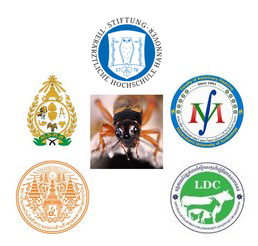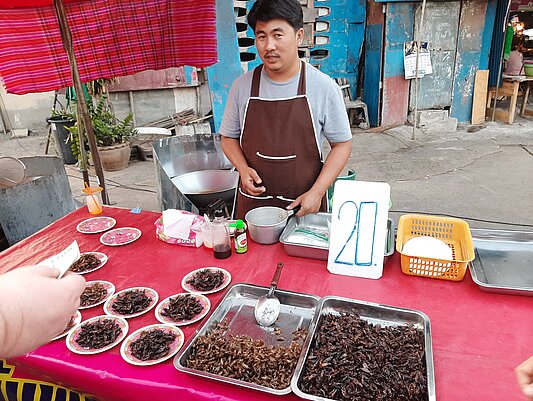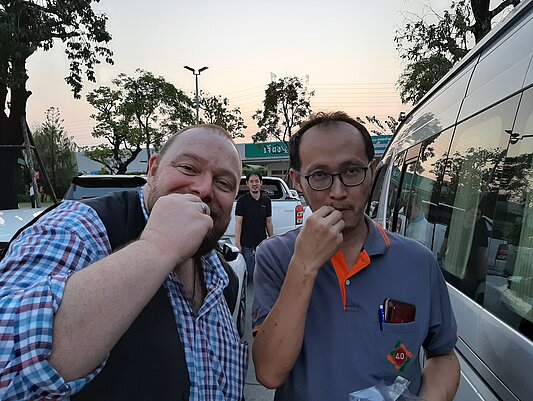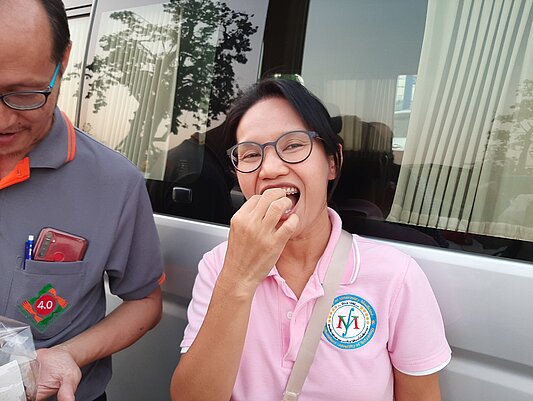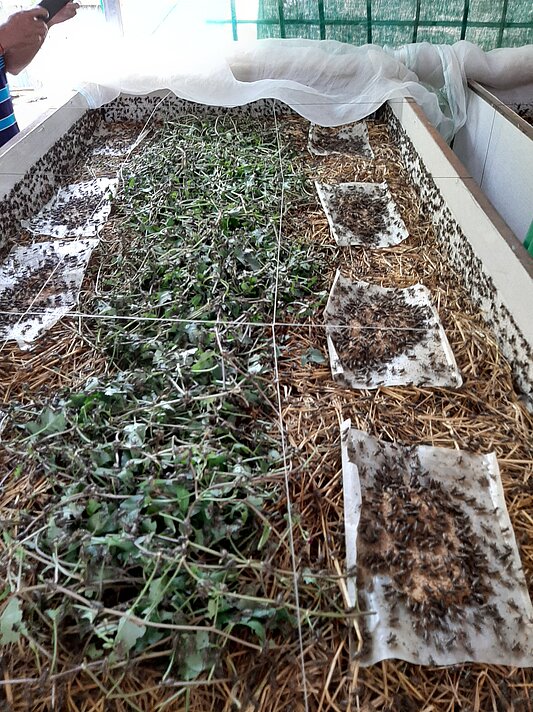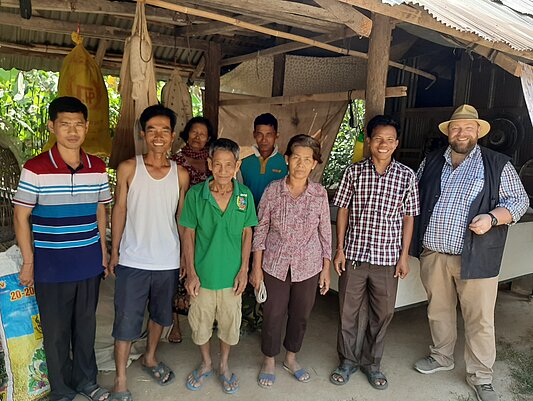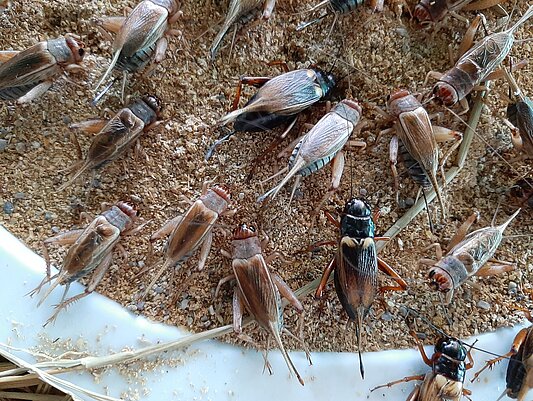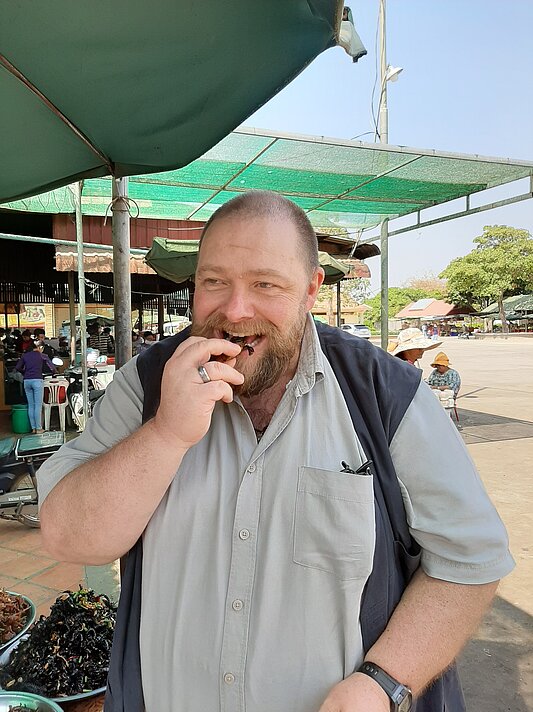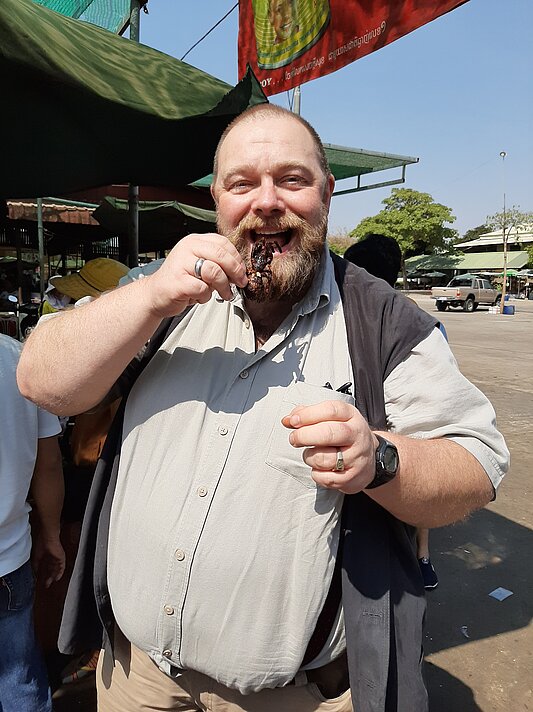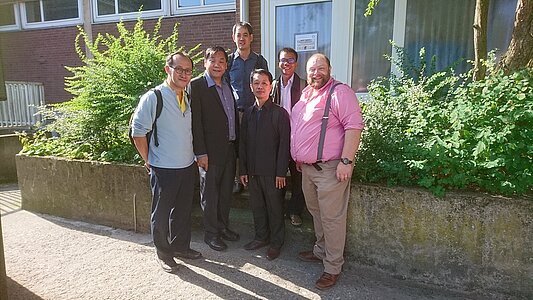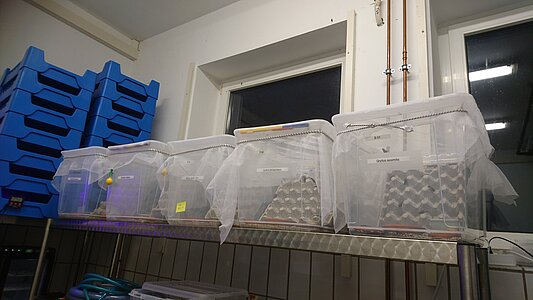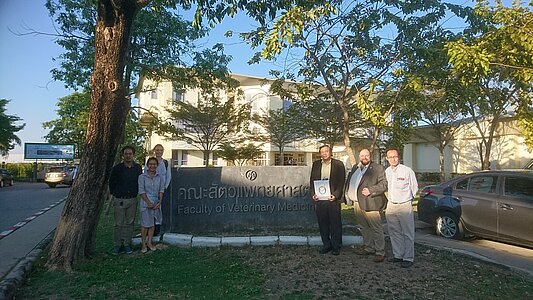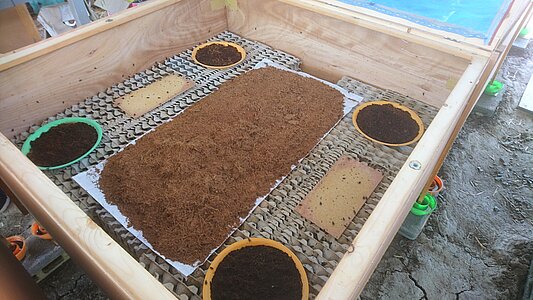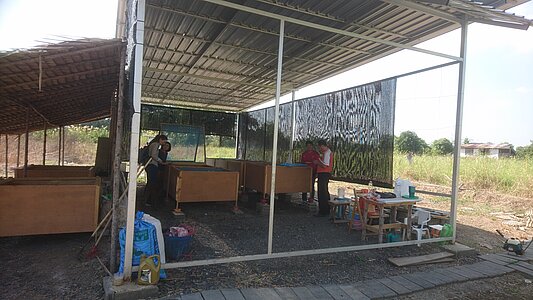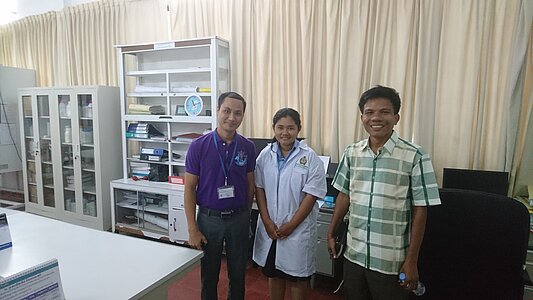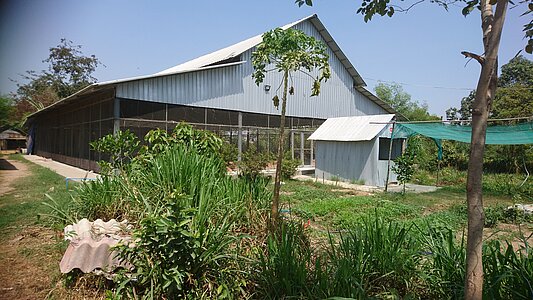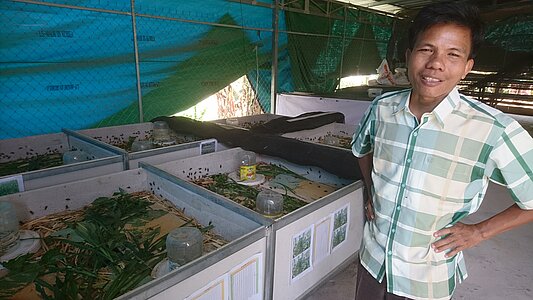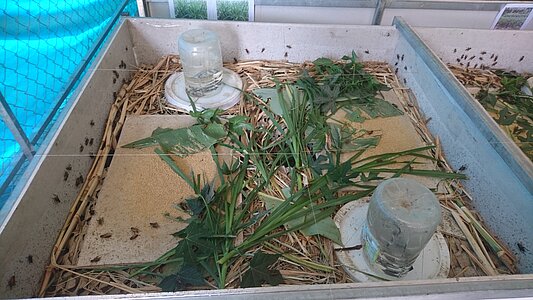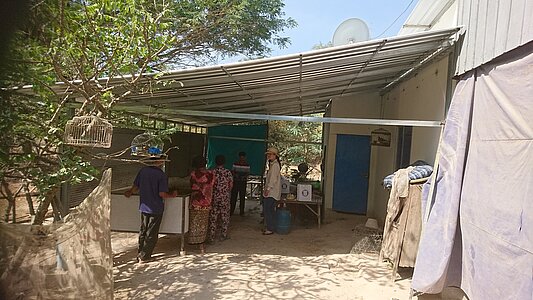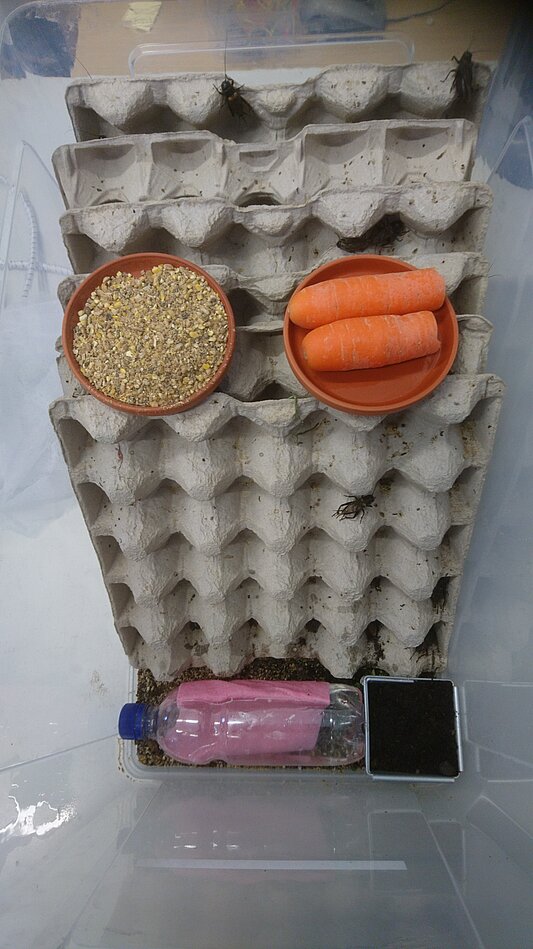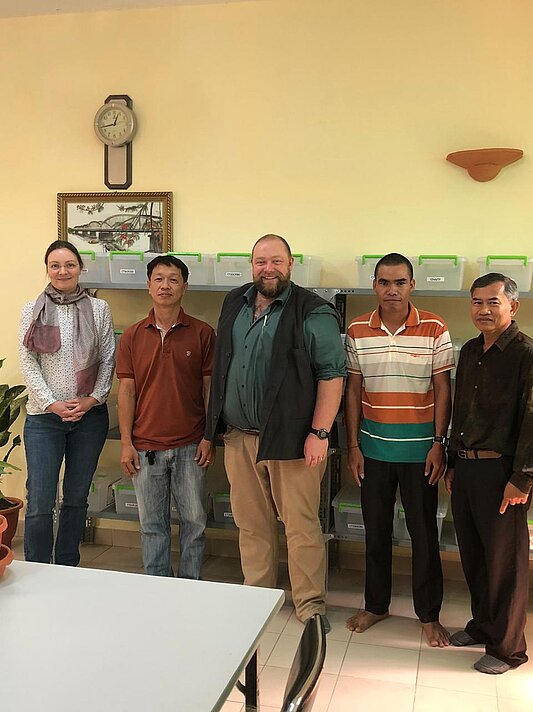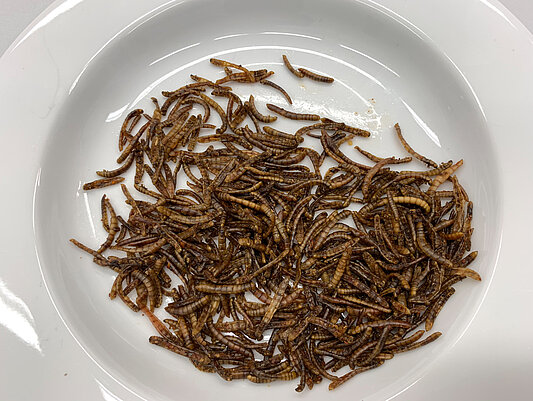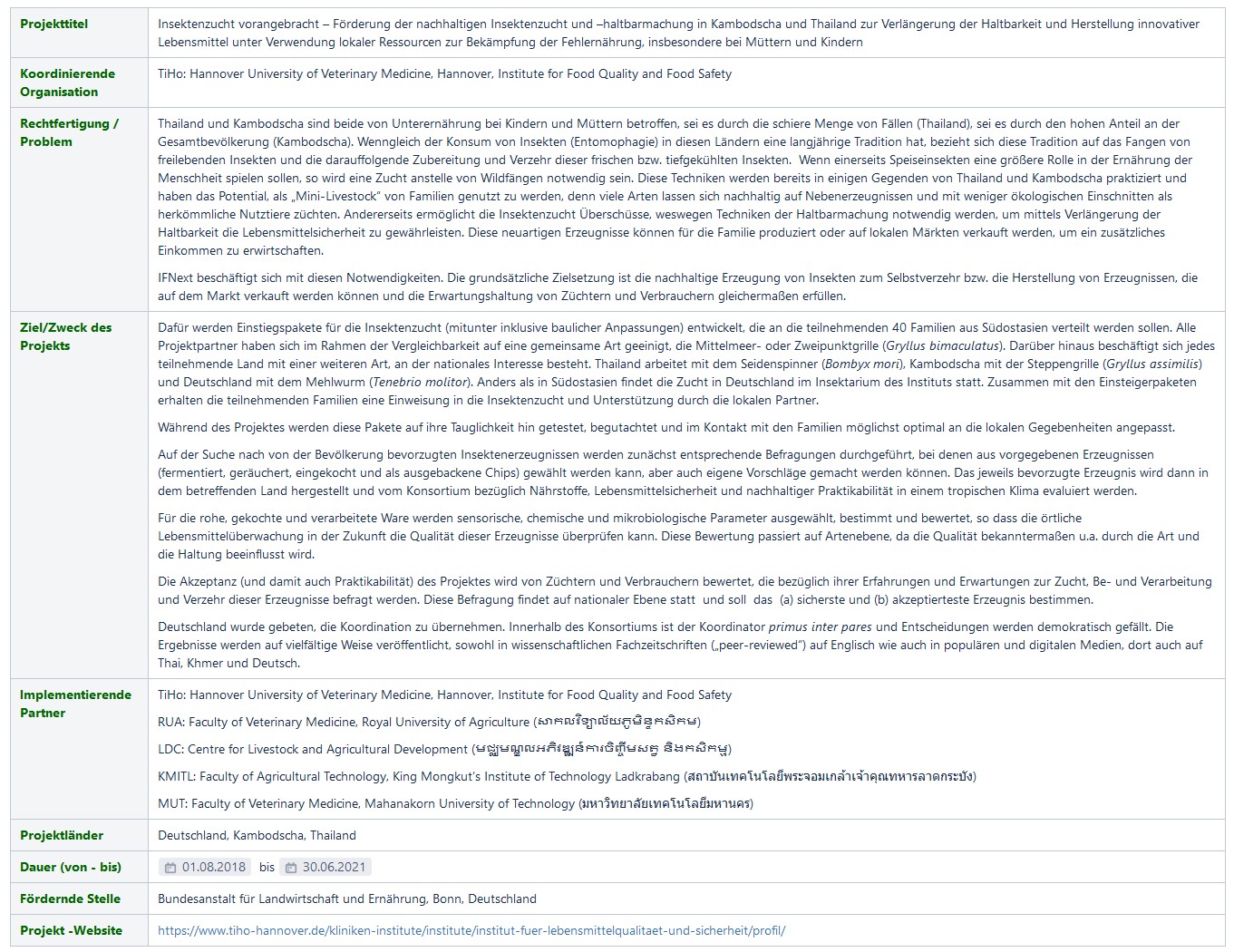Insect breeding advanced. Promote sustainable insect breeding and preservation in Cambodia and Thailand to extend shelf life and produce innovative foods using local resources to combat malnutrition, especially among mothers and children
Project presentation as Pageflow https://creator.hosted-pageflow.com/teasers/if-next
Hi there,
and welcome to the project homepage of IFNext - Bringing Insect Farming to the Next Level. Our goal is to promote sustainable insect breeding and conservation in Cambodia and Thailand to extend shelf life and produce innovative foods using local resources to combat malnutrition, especially among mothers and children. In the next three years we will - d. H. A team of veterinarians and animal breeding scientists from Cambodia, Thailand and Germany - working for you to improve people's wellbeing by increasing and diversifying insect yields.
Thailand and Cambodia are both affected by child and maternal malnutrition, be it the sheer number of cases (Thailand) or the high proportion of the total population (Cambodia). Although the consumption of insects (entomophagy) has a long tradition in these countries, this tradition relates to the trapping of wild insects and the subsequent preparation and consumption of these fresh or frozen insects. If, on the one hand, food insects are to play a greater role in the nutrition of mankind, then breeding instead of wild-caught ones will be necessary. These techniques are already practiced in some areas of Thailand and Cambodia and have the potential to be used as "mini livestock" by families, because many species can be bred sustainably on by-products and with less ecological cuts than conventional livestock. On the other hand, insect breeding enables surpluses, which is why preservation techniques are necessary in order to ensure food safety by extending the shelf life. These novel products can be produced for the family or sold in local markets for additional income.
IFNext addresses these needs. The basic objective is the sustainable production of insects for self-consumption or the production of products that can be sold on the market and meet the expectations of breeders and consumers alike.
For this purpose, introductory packages for insect breeding (sometimes including structural adaptations) are being developed, which are to be distributed to the 40 families from Southeast Asia taking part.
In the context of comparability, all project partners have agreed on a common type, the Mediterranean or two-point cricket (Gryllus bimaculatus). In addition, each participating country deals with another species that is of national interest. Thailand works with the silk moth (Bombyx mori), Cambodia with the steppe cricket (Gryllus assimilis / locorojo) and Germany with the mealworm (Tenebrio molitor). Unlike in Southeast Asia, breeding in Germany takes place in the institute's insectarium. Together with the starter packages, the participating families receive instruction in insect breeding and support from local partners.
During the project, these packages are tested for their suitability, appraised and, in contact with the families, optimally adapted to the local conditions.
In the search for the insect products preferred by the population, appropriate surveys are first carried out, in which you can choose from given products (including fermented, smoked, boiled down and fried chips), but you can also make your own suggestions. The preferred product will then be produced in the country concerned and evaluated by the consortium with regard to nutrients, food safety and sustainable practicability in a tropical climate.
For the raw, cooked and processed goods, sensory, chemical and microbiological parameters are selected, determined and evaluated so that the local food inspection can check the quality of these products in the future. This assessment takes place at the species level, since the quality is known to be influenced by the species and the attitude, among other things.
The acceptance (and thus also the practicability) of the project is assessed by breeders and consumers who are asked about their experiences and expectations regarding the breeding, processing, processing and consumption of these products. This survey takes place at the national level and is intended to determine (a) the safest and (b) the most accepted product.
Germany was asked to take over the coordination. Within the consortium, the coordinator is primus inter pares and decisions are made democratically. The results are published in a variety of ways, both in scientific journals (“peer-reviewed”) in English and in popular and digital media, there also in Thai, Khmer and German.

